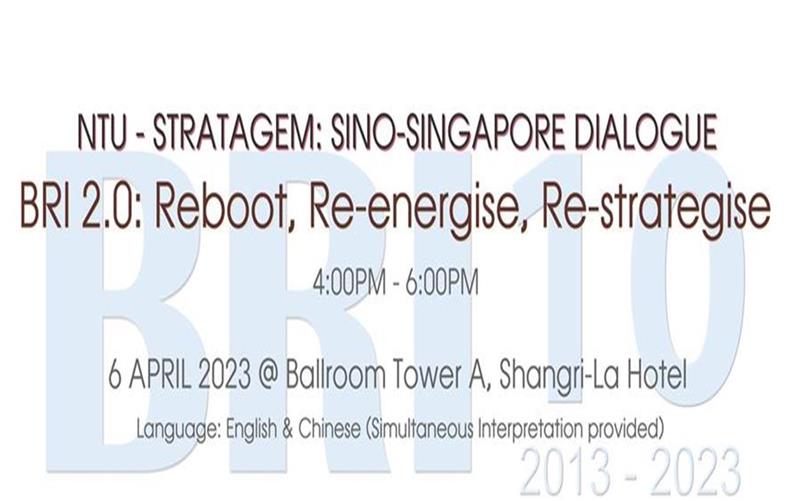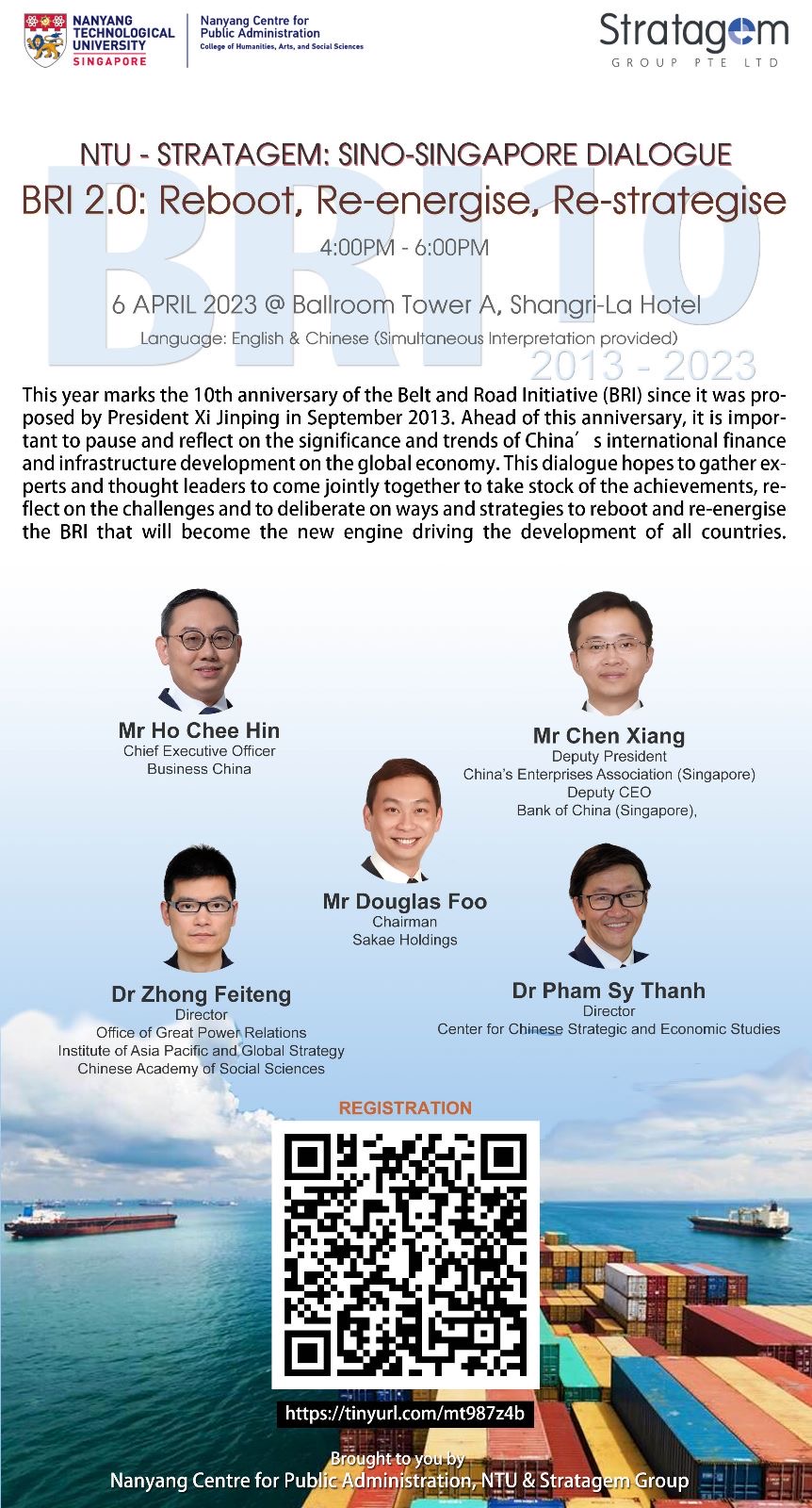NTU & Stratagem: Sino-Singapore Dialogue:BRI 2.0: Reboot, Re-energise, Re-strategise


This year marks the 10th anniversary of the Belt and Road Initiative (BRI) since it was proposed by President Xi Jinping in September 2013. Ahead of this anniversary, it is important to pause and reflect on the significance and trends of China’s international finance and infrastructure development on the global economy. Despite the many challenges and delays due to the COVID-19 pandemic whereby many projects were stalled or cancelled, there has been significant increase in Chinese investment in BRI projects. As of 2022, China has signed Memorandums-of-Understanding (MOUs) with 150 countries and 32 international organizations, among which 46 are in Africa, 37 in Asia, 27 in Europe, 11 in North America, 11 in the Pacific and eight in Latin America. In the first 11 months of 2022, China's trade with Belt and Road partners grew by 20.4 percent as well.
H.E. Wang Yi, Director of the Office of the Foreign Affairs Commission of the Communist Party of China (CPC) Central Committee has confirmed that China will host the third Belt and Road Forum for International Cooperation this year, which would be the first staging of the event since the pandemic. The BRI will be a major highlight of Beijing's diplomatic agenda to ensure they better serve the common good of the international community. China has clarified and strengthened BRI guidelines to shape future implementation of BRI projects and has expressed three missions for the BRI moving forward:
- Growth-promoting: sharing China’s development experience; linking up with other national economies; enhancing the long-term foundation for world development.
- Re-globalization: Rebalancing maritime and land globalization; rebuilding a more inclusive and equitable global economy; de-Westernization (de-centralizing).
- New regionalism: Economic corridors and belts, in contrast to conventional economic unions and zones.
Therefore, this dialogue hopes to gather experts and thought leaders to come jointly together to take stock of the achievements, reflect on the challenges and to deliberate on ways and strategies to reboot and re-energise the BRI that will become the new engine driving the development of all countries.














/enri-thumbnails/careeropportunities1f0caf1c-a12d-479c-be7c-3c04e085c617.tmb-mega-menu.jpg?Culture=en&sfvrsn=d7261e3b_1)

/cradle-thumbnails/research-capabilities1516d0ba63aa44f0b4ee77a8c05263b2.tmb-mega-menu.jpg?Culture=en&sfvrsn=1bc94f8_1)

7e6fdc03-9018-4d08-9a98-8a21acbc37ba.tmb-mega-menu.jpg?Culture=en&sfvrsn=7deaf618_1)
